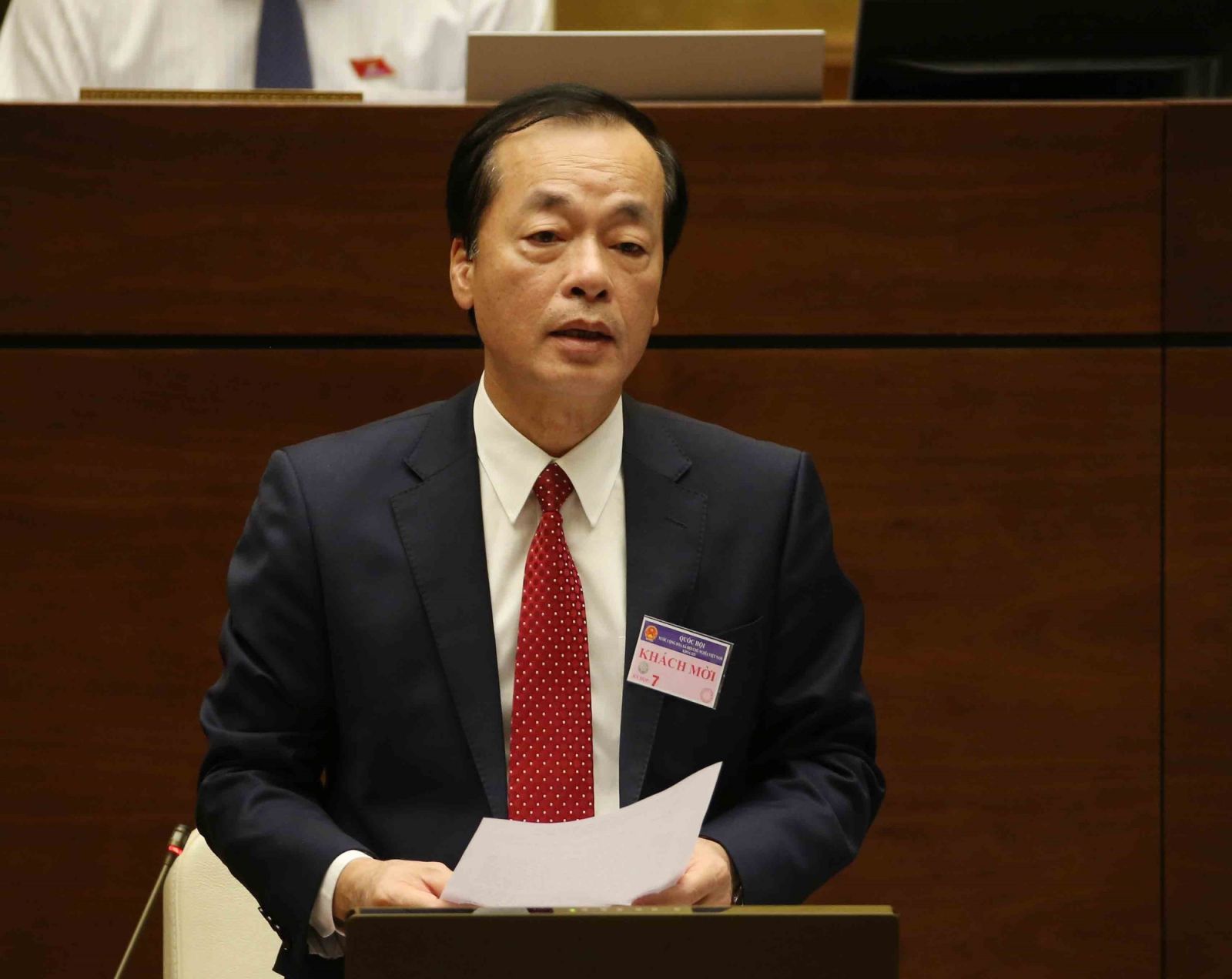
Minister of Construction Pham Hong Ha fields lawmakers' questions on June 4. (Photo: VNA)
Construction Minister Pham Hong Ha said many limitations of the real estate market have their roots in the overlapping and even contradicting regulations in real estate-related laws. The product structure of the property market is unbalanced, with oversupply in some mid- and high-range segments while there is a shortage of social housing and affordable commercial housing.
He was the second minister to field legislators’ queries at the ongoing seventh session of the 14th National Assembly.
The minister also underlined the lack of financial resources for the property market. He said the market depends on bank credit and customers’ advance payment, while investors’ own capital accounts for about 15-30 percent of total investment.
He presented statistics that showed outstanding debts in the property sector stood at around 479 trillion VND as of the third quarter of 2018, or 8 percent of total outstanding credit, which was still at the safe level. However, the flow of credit concentrated on a number of big investors and high-risk segments.
Regarding solutions to those problems, Minister Ha emphasised the need to continue to complete institutions and synchronise laws from land planning, financial mechanisms, investment and construction to management.
He said efforts should focus on developing social housing and small- and medium-sized commercial housing, adding that his ministry will recommend ways to encourage firms to invest in social housing.
Ha also pointed out many problems in urban development and planning, noting that the quality of urban planning is still low. Some plans have failed to make precise predictions about population growth, causing wrong calculations relevant to urban space structure, infrastructure and other criteria. This has subsequently led to construction projects not matching the reality.
Shortcomings have also been seen in the implementation of urban plans, he said, adding that though local state agencies have made efforts, the management of construction activities in cities remains limited.
The minister also accepted responsibility for weaknesses in the fine-tuning, monitoring and assessment of the implementation of legal regulations; the verification of some construction projects; and the building of relevant standards.
Meanwhile, the number of violations of urban plans has decreased but remains high, he said, pointing out several causes, including some localities’ lack of due attention to land- and construction-related work, the lack of connectivity between inspectorates and local authorities, the shortage of capable inspectors, and lax settlement of some violations.
Mentioning solutions, Ha pledged that his ministry will improve the quality and feasibility of urban plans, as well as the supervision of construction projects.
It will also further publicise legal regulations on planning so that people can help with monitoring, while stepping up inspection and strictly dealing with violations, the official added.
The Construction Minister was the second Government member to go before the NA in the question-and-answer (Q&A) session that began in the morning of June 4, following Minister of Public Security To Lam.
The Q&A session will last two days and a half as part of the ongoing 14th NA’s 7th session, and will be broadcast live nationwide.


















